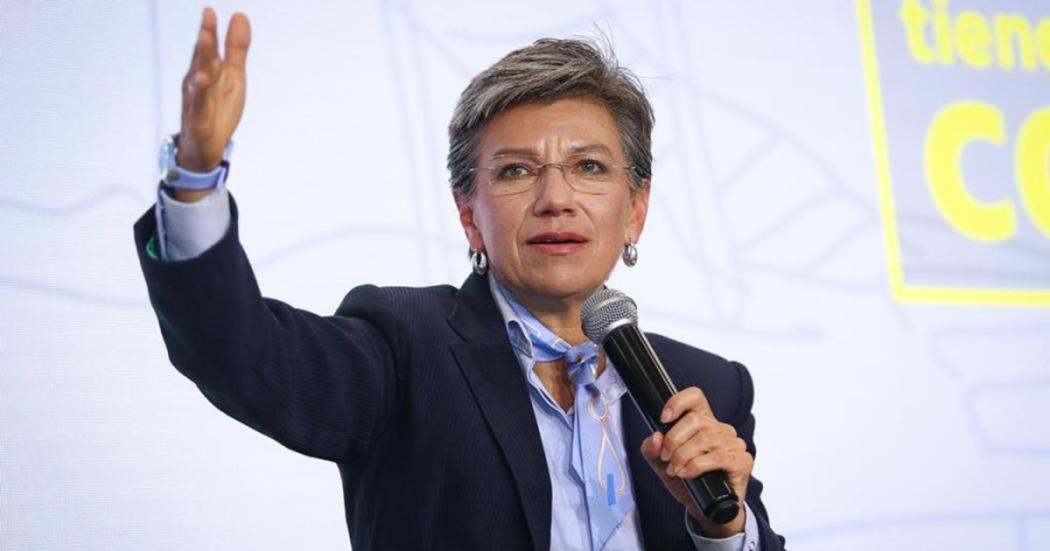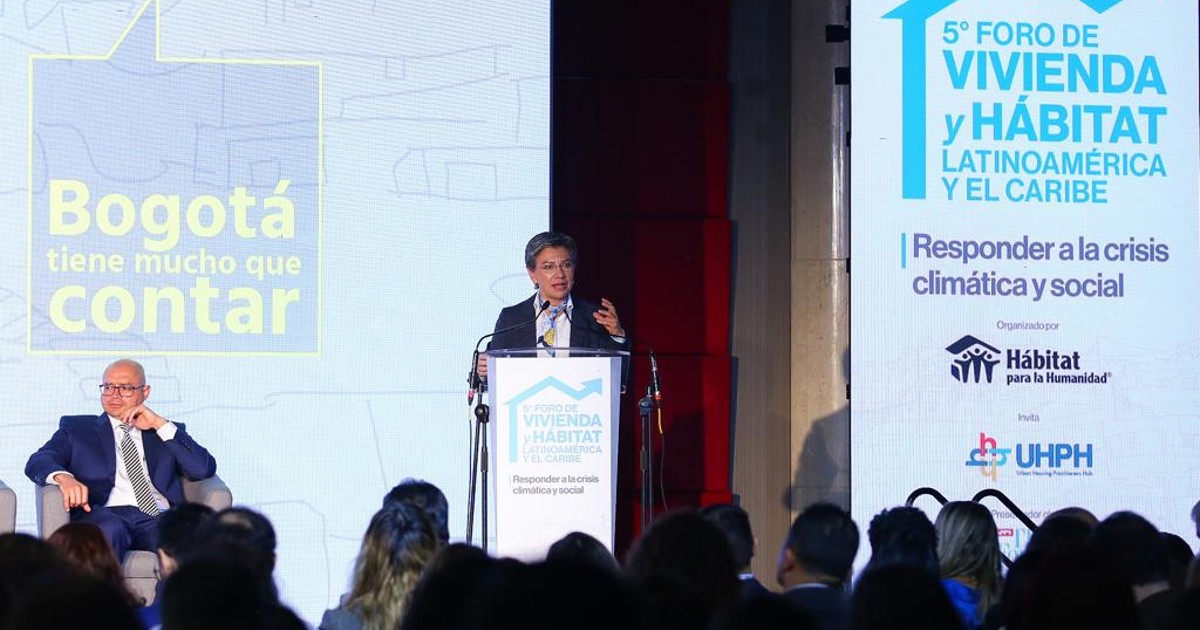Bogotá's Mayor, Claudia López, took part in the panel 'Building resilient, inclusive, and sustainable housing and territories through local governance', within the framework of the 5th International Forum on Housing.
This event has turned the Colombian capital into the epicenter for analyzing policies, strategies and projects aimed at providing comprehensive, innovative, and scalable solutions to the housing quality challenges faced by the population in Latin America and the Caribbean during this week.
The forum, organized by 'Habitat for Humanity,' a global NGO dedicated to housing and sustainability issues, is the only regional platform that brings together international experts, government authorities, private sector representatives, academia, civil society, community leaders, and multilateral banks. Its main focus is to review the status of housing in the region, share experiences, and build collective knowledge to drive changes that contribute to the Sustainable Development Goals and the New Urban Agenda.
The panel in which Mayor López participated was moderated by journalist Claudia Palacios and featured the involvement of local leaders such as Patricio Vallespín from Los Lagos, Chile; Joel Martínez from Port of Spain, Trinidad and Tobago; Edmilson Rodríguez from Belém do Pará, Brazil; Johnny Araya from San José, Costa Rica; Lluisa Moret from Sant Boi AM, Barcelona (Spain), and Luis Roberto Durán, the manager of Viva, the housing company of the Colombian department of Antioquia.
In the following tweet, Mayor Claudia López provided details about the "Plan Terrazas," a program that offers social curating and urban improvement to those who already own a home in Bogotá:
El #PlanTerrazas es otra de nuestras innovaciones sociales. Es un programa que les ofrece una curaduría social a quienes ya tienen una vivienda en la Bogotá en mejoramiento urbano. De esta forma pueden reforzar la estructura de su primer piso y construir el segundo, con apoyo de… pic.twitter.com/4eyaMrhlnz
— Claudia López Hernández (@ClaudiaLopez) August 1, 2023
"My government is the first in the history of Bogotá to invest in rural housing. It's shameful to hold that title. 75% of the city's territory is rural. In the Sumapaz district, where our water comes from, there was no rural water supply. They provide us with water, take care of the moorlands where our water originates, and not a single peso had ever been invested in that area for housing," expressed Mayor Claudia López with regret.
Furthermore, the Mayor presented what she believes needs improvement regarding previous policies, which were evident in urban planning schemes that uprooted the most vulnerable families, denying them the chance to obtain housing in the city's urban center and relegating them to distant outskirts, leading to low productivity.
As a social innovation, the Mayor spoke about the Master Plan, which recognizes informal settlements to legalize them and make life easier for the people: "We have to fight against land speculators, those who sell land that doesn't belong to them, in flood-prone and risky areas, deceiving citizens, robbing families of their savings, and leaving the city with the problem. It is against them that we must fight," she explained.
Additionally, they discussed the more than 3,940 subsidies provided by the city Administration for housing improvement, which will reach over 6,000 by the end of 2023. They also addressed the 'Plan Terrazas,' a program for improving housing in popular habitats, which, as of July 2023, has benefited over 690 families by enhancing the foundations of at-risk houses and expanding them for the benefit of their owners.
Housing Reality
Currently, the Inter-American Development Bank (IDB) estimates that 45% of the population in Latin America and the Caribbean lacks decent housing. These families reside in homes built with poor-quality materials, which are highly vulnerable to climate change, often lacking access to basic services, some even with earthen floors, and on land that does not belong to them.
In the 5th Forum on Housing and Habitat, which will conclude tomorrow, international and national experts address five thematic axes:
- Trends, challenges, and impacts of climate change on housing and settlements.
- Empowering institutional frameworks for inclusive mitigation and adaptation to climate change.
- Public and private financing with an inclusive, sustainable, and resilient approach.
- Urban inequities, sustainable territories, and local governance.
- Innovation in the housing and settlement sector for inclusive mitigation and adaptation to climate change.
Below is the transmission of the panel 'Building resilient, inclusive, and sustainable housing and territories through local governance:









